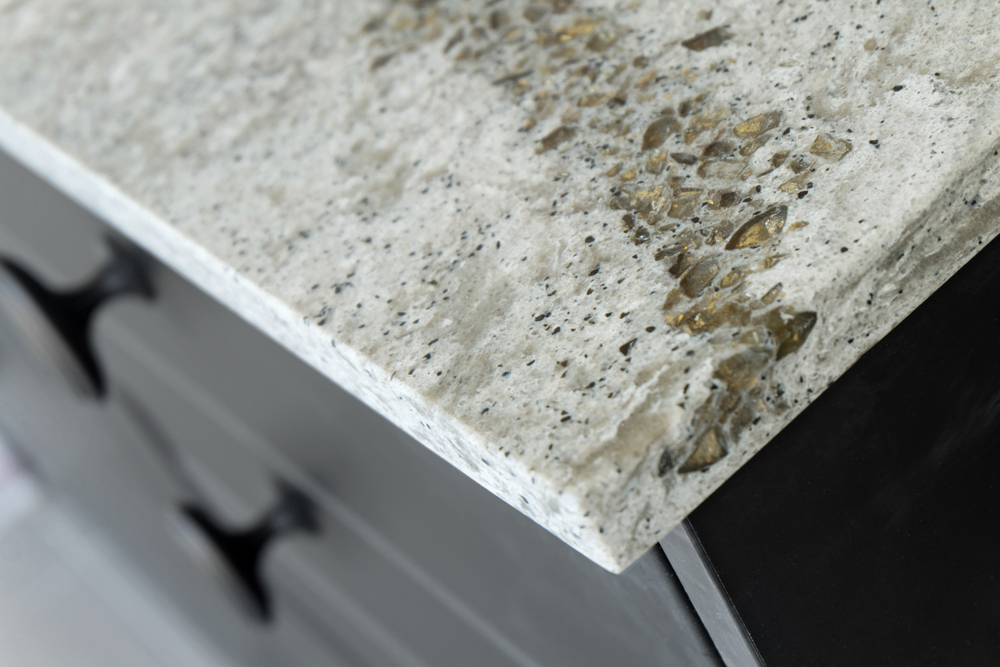Quartz and quartzite are two separate materials with some key distinctions. Consumer Reports distinguishes between these popular countertop options. Loose quartz makes up about percent of the material. Here is a comparison of quartz and quartzite that will help you decide which material is right for your bathroom or kitchen countertops project. These two minerals are found in abundance in the earth’s crust.
However, these two minerals have many differences between them. The main component of quartz is silica or silicon dioxide. The subtle differences between quartzite and quartz seem to befuddle everyone from design-savvy clients to industry experts. It is comprised of oxygen and silica.
Some people even use the names interchangeably, which is a huge mistake because it only adds to the confusion. When sandstone is cemented to quartzite , the individual quartz grains recrystallize along with the former cementing material to form an interlocking mosaic of quartz crystals. Quartzite is more scratch- and acid-resistant. Pure quartzite is generally comprised of or more of quartz and other trace minerals.

Its beauty and durability vary from the minor amounts of impurities being incorporated with the quartz during metamorphism millions of years ago. Whether you like the bold minerals formations in granite, the understated look of white marble, or the soft feel of soapstone, there are almost endless choices. Granite, which once was the go-to material for countertops, is slowly being phased out for the low maintenance of quartz and the beauty of quartzite. This material is often found where regional or contact metamorphism took place.
Here’s a run-down on the differences between the two. Both quartz and quartzite products are easy to clean and keep in top-notch condition, but the most important difference between the two is that quartzite countertops need to be sealed for better protection, while quartz ones do not. Simply put, quartzite is a naturally occurring metamorphic rock, while quartz is an engineered material created with natural silicon dioxide and synthetic materials.
Sandstone is transformed into quartzite by heat and pressure. When sandstone is formed into quartzite , the separate quartz particles recrystallize to form an interconnecting mixture of quartz crystals, which have a different texture and sedimentary structure than the. Both quartzite and marble tend to form via regional metamorphism (more pressure than heat) and contact metamorphism (more heat than pressure).
Metamorphosis means change. With rocks that means it was probably buried and subjected to heat and pressure and changed. The effect is that, in quartzite , the quartz grains that composed the sandstone have become fused together and the rock is no longer. While their names are quite similar, there is a big difference between quartzite and quartz. Read along to compare the differences between quartzite and quartz.

Choosing the right material for your new kitchen countertops can be one of the most important decisions to make when it comes to design and quality. Marble Engineered to be stronger and have a more consistent look, quartz is different than the natural look of large slabs of solid stone like marble or granite. However, patterns and colors that look like more natural stones are available, giving quartz the best of both worlds.
Primarily, quartz is engineered from quartz mineral that consist of silicon dioxide. The minerals are found in ingenuous metamorphic and sedimentary rock, which is often colored by impurities. It can handle extreme heat without issue.
Quartz by contrast is man-made and designed to mimic the qualities of quartzite. Or even that quartzite is perhaps a fabricated version of quartz. Best Answer: The difference between the two is that quartz is a mineral and quartzite is a metamorphic rock.
What is the Difference Between Quartz and Granite Countertops In the quest for the perfect countertop, you will undoubtedly compare granite and quartz materials. Quartz is a mineral composed of Silicon and Oxygen. Although these counters often have similar appearances, they have vastly different qualities. Yet, it keep mentioning Quartz which is a completely different.
You also mention that some quartzite could have resin mixed it. Yes, it does that is how it is made! Image: Monet Quartz From Arizona Tile. Our Monet Quartz doesn’t require much maintenance and wipes clean with a damp cloth. This ease of care is the main advantage quartz has over quartzite.
Since quartzite is a natural stone, it requires more attention. In terms of looks, it really does come down to “beauty is in the eye of the beholder. Engineered quartz tile is available in more colors than quartzite , thanks to added pigmentation. So comparing different materials like granite vs marble or quartzite vs granite can be extremely beneficial to your project. Materials like granite have always been popular, and remain so.
However, one material that has been growing in terms of popularity is quartzite. This natural stone is not to be confused with quartz , which is a man-made. Supply and demand has driven the price of quartzite up, so expect to pay a little more and have fewer color options than with granite.
Don’t confuse quartzite with manufactured Quartz Surfacing. Despite the similarity in name, quartz and quartzite are completely different materials!
No comments:
Post a Comment
Note: Only a member of this blog may post a comment.